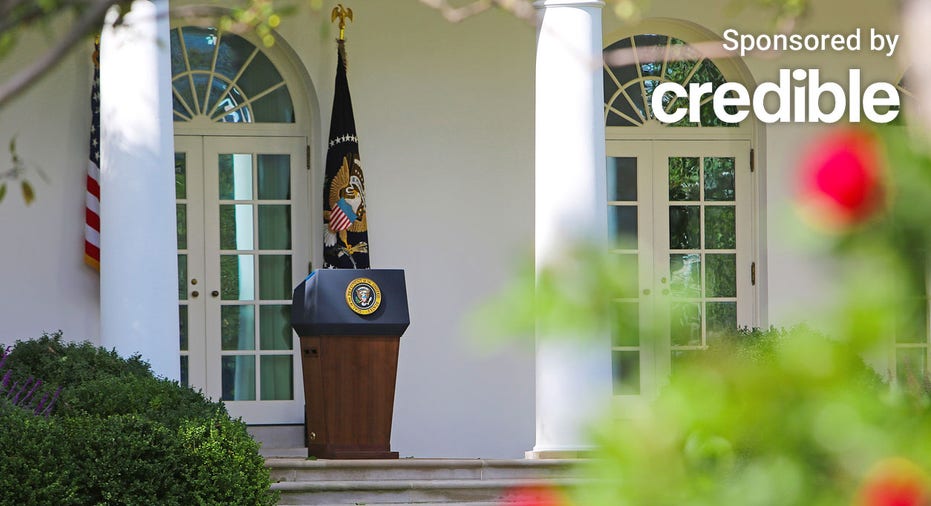Biden ignores question about student loan forgiveness at press conference
The president campaigned on providing $10,000 worth of debt relief per student borrower

The future of federal student aid is unclear as federal student loan payments are set to resume in May. (iStock)
President Joe Biden held a press conference on Jan. 19, a year into his term, to address several economic concerns, including the supply chain crisis and record-high inflation. But when asked about his campaign promise of canceling $10,000 worth of student loan debt per borrower, the president declined to comment.
At the end of the two-hour-long briefing, Biden was asked "two simple questions" — the first had to do with his progress on widespread student loan forgiveness, and the second was about reforming the Electoral Count Act. While the president took the time to address the latter question, he abruptly ended the press conference before commenting on canceling student loan debt.
"Folks, it is now almost 6:00," Biden said. "With all due respect, I’m going to see you at the next conference."
Keep reading to learn more about the likelihood of broad student loan forgiveness, as well as your alternative student debt repayment plans like refinancing. You can visit Credible to learn more about student loan refinancing and decide if this strategy is right for your financial situation.
TWO STUDENT LOAN SERVICERS END FEDERAL CONTRACTS, DESERTING 10M BORROWERS
Will Biden forgive student loans?
Since taking office, President Biden has been reluctant to clarify his administration's stance on forgiving federal student loan debt. But as a presidential candidate, Biden made it clear that he would work to discharge $10,000 worth of federal student loan debt per borrower.
EDUCATION SECRETARY MIGUEL CARDONA: 'BROAD' STUDENT LOAN FORGIVENESS STILL ON THE TABLE
Many prominent Democrats, including Sen. Elizabeth Warren and Senate Majority Leader Chuck Schumer, have been insistent in calling on the president to cancel student loan debt. They argue that Biden has the authority to cancel up to $50,000 worth of student loans per borrower using executive action under the Higher Education Act of 1965.
However, not all lawmakers agree that this includes widespread student loan cancellation. House Speaker Nancy Pelosi has previously said that debt forgiveness "has to be an act of Congress." In a February 2021 town hall, the president indicated that he doesn't think he has the legal authority to enforce student debt cancellation.
White House Press Secretary Jen Psaki elaborated in December 2021 that Biden is "happy to sign" debt forgiveness legislation passed by Congress, punting the responsibility to lawmakers in the House and Senate. But it would be difficult for Democrats to push student loan cancellation in a narrowly divided Congress that was unable to pass Biden's signature spending bill, the Build Back Better Act.
As the future of student loan discharges is unclear, millions of Americans are burdened by $1.75 trillion worth of college debt, according to the Federal Reserve. If you're looking for alternative student loan repayment options, compare student loan refinancing offers on Credible for free without impacting your credit score.
PUBLIC SERVICE LOAN FORGIVENESS PROGRAM (PSLF) JUST GOT EASIER FOR 550,000 BORROWERS
How to determine if you should refinance your student loans
Student loan refinancing is when you take out a private student loan with better terms to repay your student debt. Refinancing to a lower interest rate may help you reduce your monthly payments, pay off your debt faster and save money on interest charges.
A recent Credible analysis found that well-qualified student loan borrowers who refinanced to a longer-term loan were able to lower their monthly payments by more than $250 on average, while those who refinanced to a shorter-term loan saved nearly $17,000 in interest charges over the life of the loan.
Despite its money-saving benefits, student loan refinancing isn't right for everyone. Refinancing your federal student debt into a private loan would make you ineligible for certain Education Department protections, such as income-driven repayment and federal student loan forgiveness programs.
If you don't plan on utilizing these federal programs, though, it may be worthwhile to refinance to a lower interest rate. And if you already have private student loans, you don't risk losing federal benefits by refinancing.
As an added bonus, student loan refinance rates are near all-time lows, according to data from Credible. You can browse student loan refinancing rates in the table below, and visit Credible to see your estimated offers to decide if refinancing is worth it for you.
BIDEN ADMINISTRATION BEGINS NOTIFYING BORROWERS OF STUDENT LOAN SERVICER CHANGES
Have a finance-related question, but don't know who to ask? Email The Credible Money Expert at moneyexpert@credible.com and your question might be answered by Credible in our Money Expert column.




















